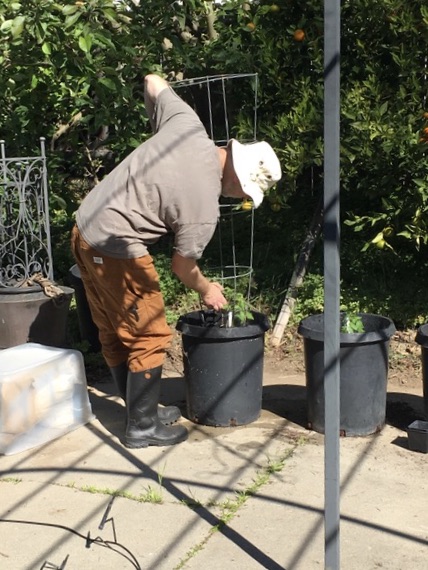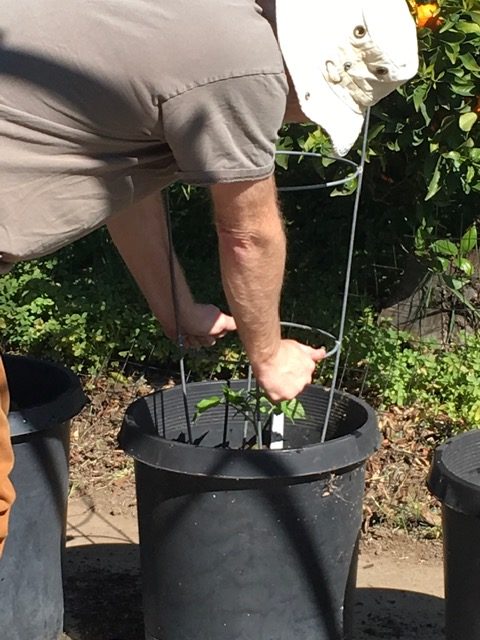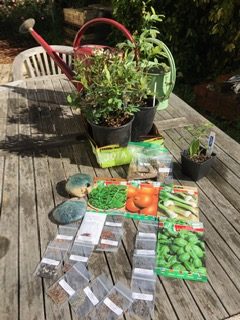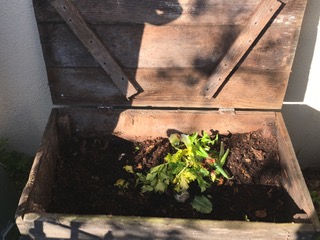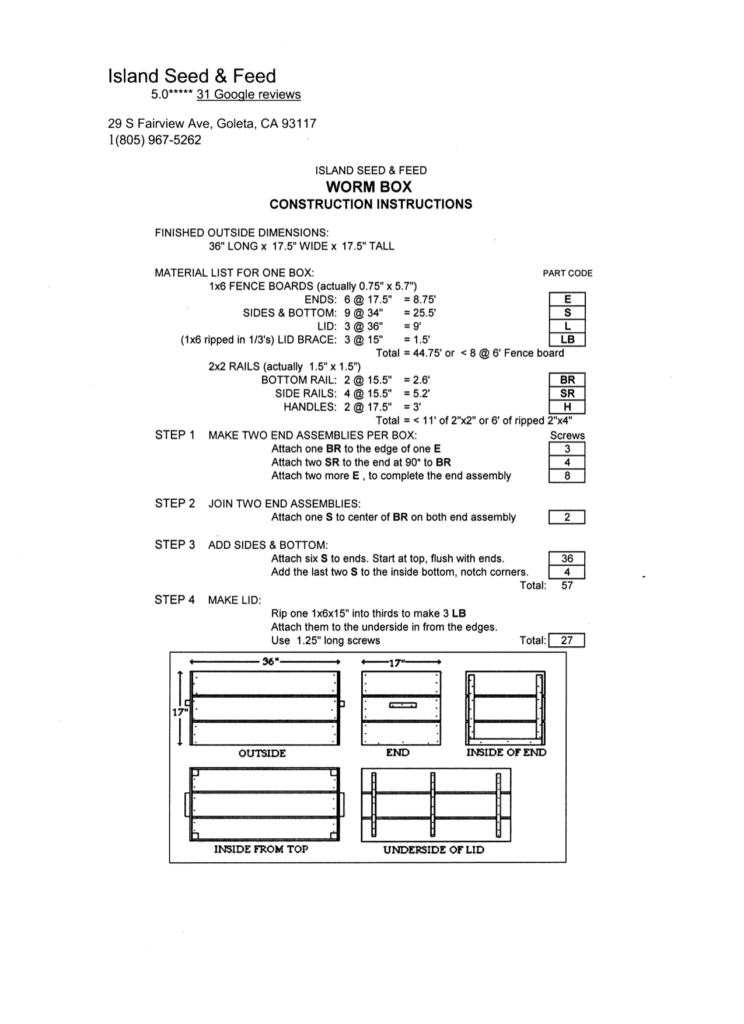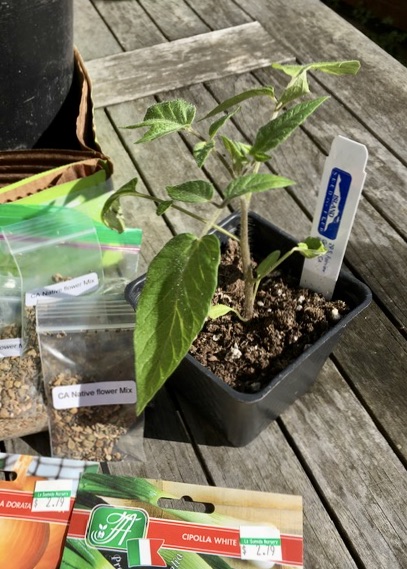
We love a good organic tomato; preferring a home-grown and heirloom variety or from the Farmer’s Market. Growing your own food is a great activity with kids, a satisfying way to teach organic gardening and the value of feeding the soil.
Do a little research to find out which plants do best in your climate. Our incredible propagating (plant growing) friends at “Island Seed and Feed” in Goleta, help us to figure out which tomato plants did well last year and what might be better this year. Of course, the amount of rain may be too much (fungus problems) or too little. We use a drip system linked up to a controller for reliable watering even if we’re busy or away.
Ask a few local irrigation companies if you’d like recommendations for setting up a drip-irrigation system with a controller. There are many ways to do-it-yourself and with help.
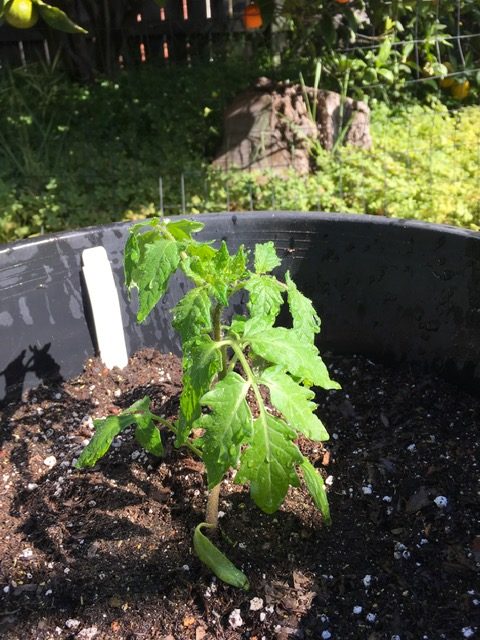
We use a good organic _potting_ soil in 15 gallon pots because the gophers will destroy our tomatoes if we plant in-ground. (Don’t reuse last year’s potted tomato soil to avoid transferring diseases; use that old soil with other non-tomato plants.) Be very cautious not to use contaminated soil or pesticides on your food plants.
Dr. N stirs in a few handfuls of organic plant food.
Then, hand waters with a B vitamin liquid + water to prevent “transplant shock.”
He leaves enough room at the top for an occasional deep watering by hand, and a sturdy tomato cage. He always puts the plant tag in the pot so we’ll remember which ones did well at the end of the harvest.
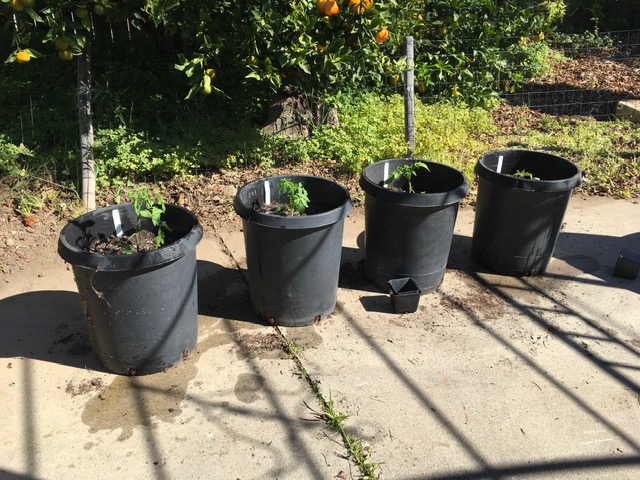
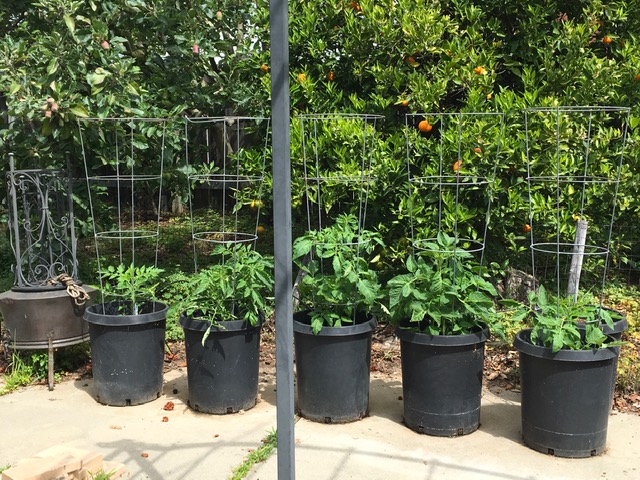
Thank you for joining us as we do Pandemic Projects, meant to keep you energized, curious and learning!

